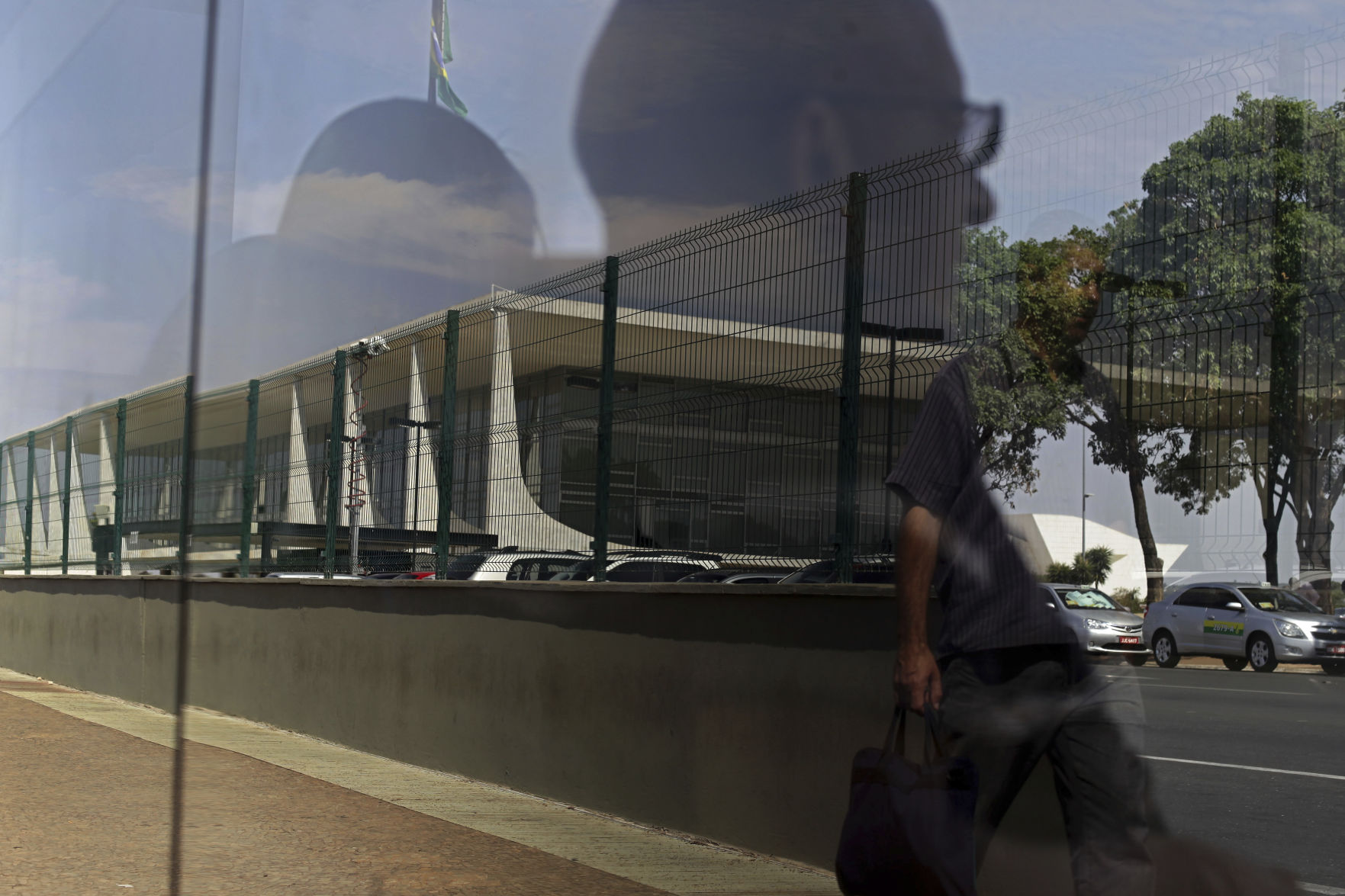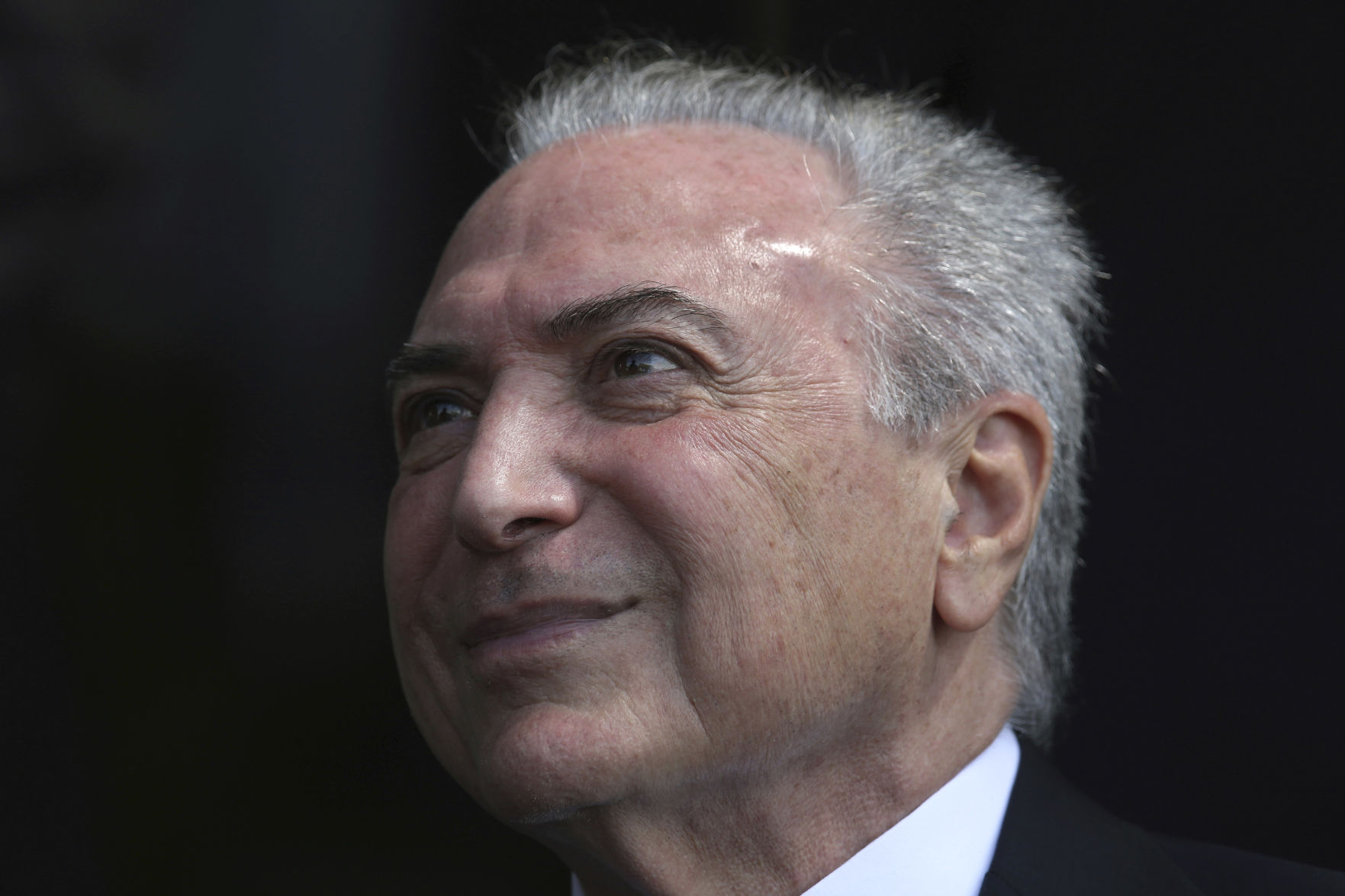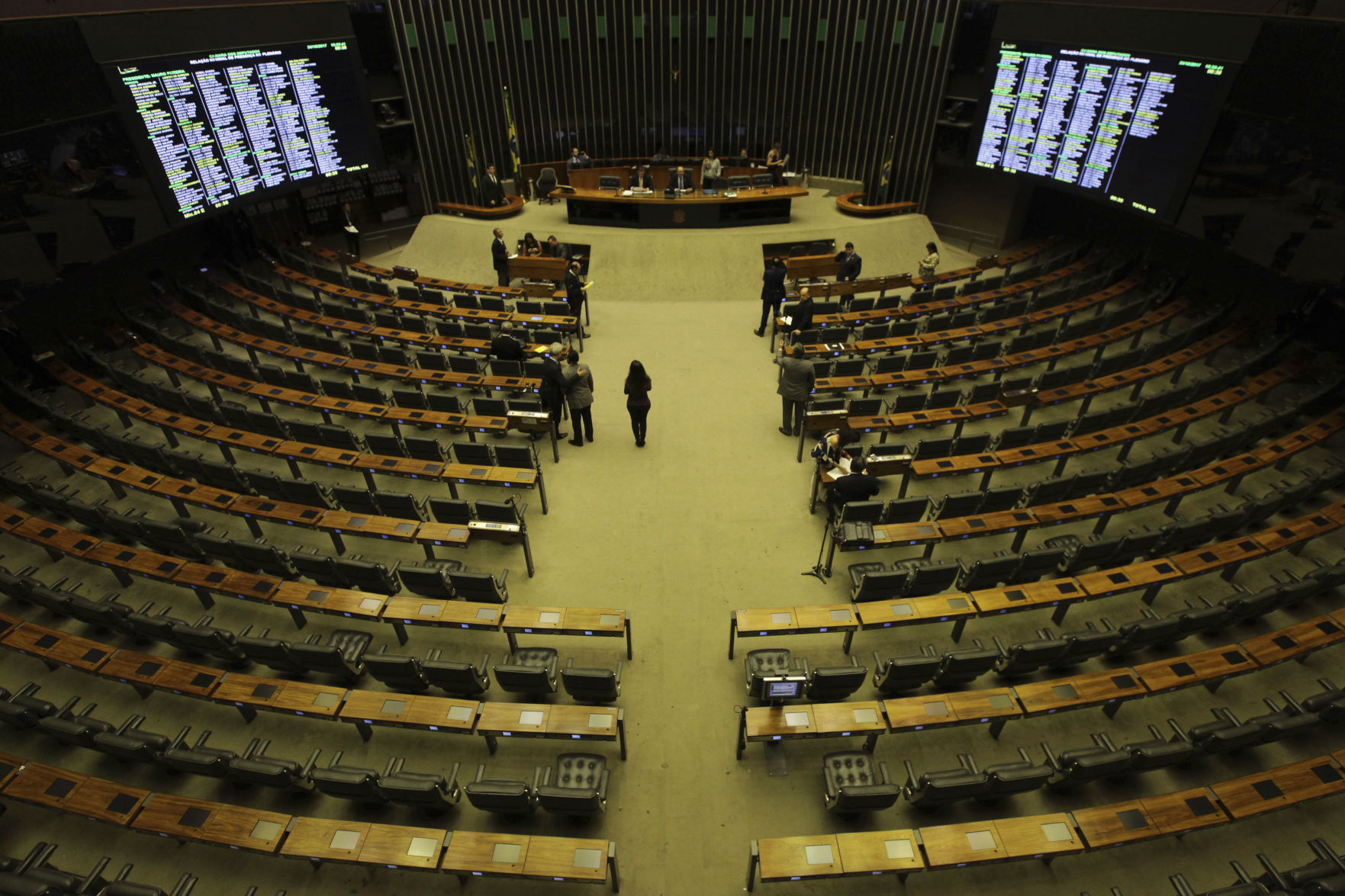AP Explains: Brazil’s Congress to vote on trying president



SAO PAULO (AP) — Brazil’s lower chamber of Congress is preparing to vote on whether to try President Michel Temer on charges of leading a criminal organization and obstructing justice. It’s the second time Temer has faced such a vote amid a litany of scandals that have dogged his presidency since he replaced President Dilma Rousseff, who was impeached and removed from office last year. The charges against Temer stem from a wide-ranging corruption probe that has ensnared dozens of politicians and top businessmen over the last three years.
Here’s a look at how Brazil got here and what comes next:
THE CHARGES
Prosecutors allege Brazil’s government was effectively run like a cartel for years, with the political parties in power selling favors, votes and plum appointments to powerful businessmen. When Temer came to power last year, the indictment alleges, he took over the criminal organization, and his party has since received about $190 million in bribes.
Temer is also accused of obstructing justice, in part by “instigating” the payment of hush money to former Chamber of Deputies Speaker Eduardo Cunha, who is serving a 15-year sentence for corruption and is believed to have much dirt on fellow politicians. Temer has denied the charges and contends the chief prosecutor who led the investigation has a grudge against him.
———
THE VOTE
Because Temer is a sitting president, he cannot be tried unless two-thirds of lawmakers in the Chamber of Deputies accept the charges. If they do, Chamber of Deputies Speaker Rodrigo Maia, a Temer ally, would be the interim president during the trial. If the threshold is not reached, the charges against Temer would be suspended and he would continue with the rest of his term, which ends Dec. 31, 2018. Prosecutors could decide to try him once he leaves office. The house’s debate could take several days.
———
TEMER’S CHANCES?
While Temer’s popularity is dismal — last month his approval rating sank to 3 percent — he still has many allies in Congress, where he is known as a deft negotiator. Many lawmakers are facing corruption charges themselves and have been quick to protect their own where possible. When he faced a bribery charge earlier this year, Temer convinced 263 deputies to support him, many more than the 171 he needed, with promises of political appointments and hundreds of millions of dollars in pork-barrel spending.
Still, all congressional seats will be up for election next year and some politicians may be nervous about supporting such a deeply unpopular leader.
———
WHAT DO BRAZILIANS THINK?
The scale of corruption has shocked even the most cynical Brazilians and decimated what faith they had in politicians. Many feel that Temer came to power illegitimately since he took over after his predecessor was impeached. Meanwhile, dozens of other politicians from across the spectrum are being investigated for corruption, underscoring a feeling among many Brazilians that the country is broken. That has raised the profile and popularity of many politicians who are considered “outsiders,” from Sao Paulo’s media mogul mayor to a far-right lawmaker who has promised a return morality to politics.
———
Sarah DiLorenzo on Twitter: twitter.com/sdilorenzo
